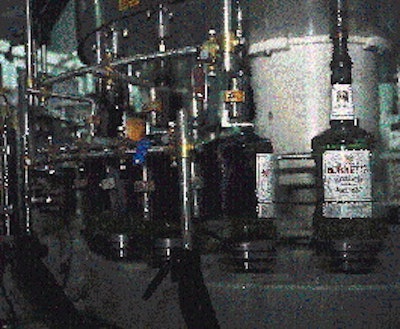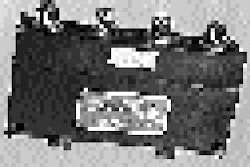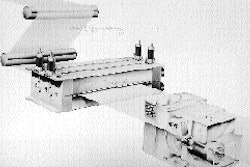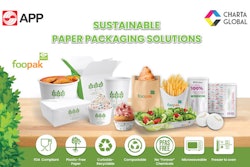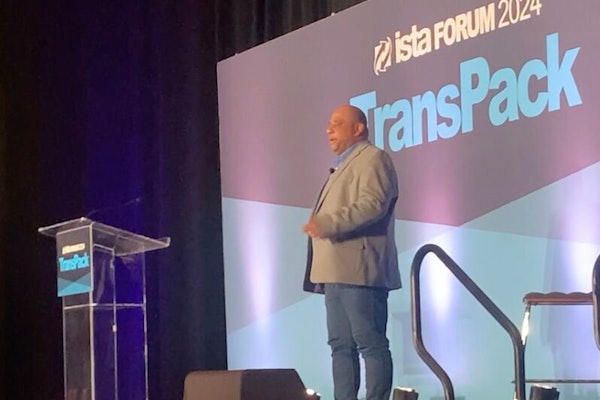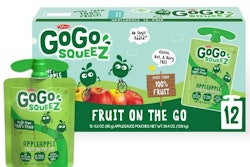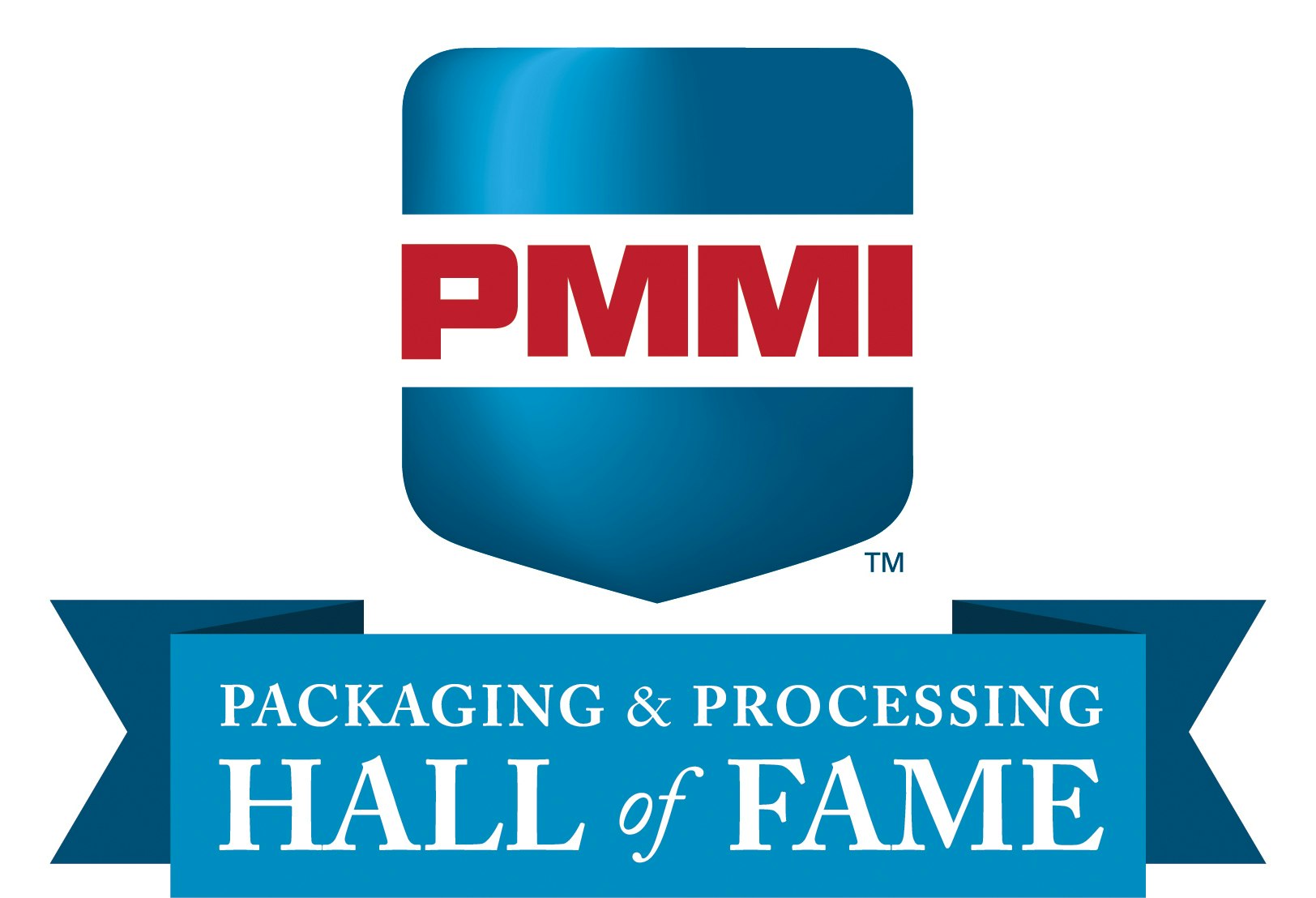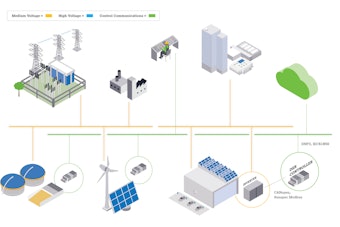Maintaining its two new rotary cold glue labelers is so easy it's almost heavenly for Bardstown, KY-based Heaven Hill Distilleries. The machines were added this past summer to 1.75-L polyethylene terephthalate line and in January '95 to a 750-mL glass line, The labelers replaced decades-old picker units. The results: Increased operating speed and reduced downtime and labor costs. The new P.E./Executive rotary labelers are built in Italy and provided by B & J Machinery (Cincinnati, OH). Designated Model 20T-1170-5P-3S-3L, the machines are capable of rates to 300/min, though other equipment on the lines prevents them from reaching those speeds at present. Still, Heaven Hill has improved its line speeds from 155 to 180/min on the PET line, and from 120 to 170/min on the square and oval glass line. "As a result of using the new labelers, we have about one-fifth the downtime and our maintenance costs are down by a corresponding 20 percent," notes David Hobbs, vice president/operations manager. He says more specific savings figures are unavailable since downtime wasn't tracked precisely. The former labelers toiled effectively for many years, Hobbs notes. "Like many alcoholic beverage producers, we used the old picker machines that applied glued labels to bottles. For a long time, these machines were considered the best you could get. But after decades of wear and tear, change parts and occasional rebuilding, we needed to increase our efficiency." "The machines used a reciprocating picker that required a lot of cams that constantly pounded up and down, and back and forth," adds Edward Kirsch, maintenance supervisor. "And, adjusting the amount of glue was a real difficulty. We often had too much glue on the label that would cause the label to slide on the bottle during application." To amend its labeling difficulties, Heaven Hill turned to B & J, a company that serviced the prior labelers for many years. B & J recommended the P.E./Executive machines, and the two were operational by mid-summer. In the future, Hobbs hopes to upgrade filling and case packing equipment to optimize the speed capabilities of the labelers. "Our speeds on the lines are dictated by our filling equipment, which cannot run at the same rates as can the new labelers," he notes. "But the nice thing about having a labeler that operates much faster than our present line speed is that it runs with extreme efficiency at a slower speed. It's a more precise process that allows us to turn out a much better quality label and product, with less machine wear." Smooth application On the PET line, the bottles, from Continental PET Technologies (Florence, KY), are automatically uncased, cleaned, filled and capped prior to reaching the new cold glue rotary labeler. A PLC controls conveyor speed to time bottles into the labeler's infeed screw. Bottles are oriented as they proceed through the screw as a spotting bar on the conveyor contacts a spotting lug on the bottle's base. The orientation is maintained as the bottle indexes through an infeed transfer starwheel onto one of 20 individual bottle plates on the machine's rotating carousel. The recessed bottle plate locks the bottle into proper position for label application. Affixed to the carousel are three independent labeling stations. A neck label is applied as the bottle passes the first station, a face label at the second, and a back panel label at the third station. "The neck label tends to want to unwrap, so it requires additional wipes to apply it completely," Hobbs notes. Label application is virtually the same at each station. The die-cut labels, from St. Louis Lithographing (St. Louis, MO), are picked from a magazine with cold glue-covered pallets. The pallet transfers the label onto a hook drum that applies the label to the bottle. Once the label is applied to the bottle, brushes wipe the label firmly into place. The bottle continues to the second and third stations to receive front and back panel labels in the same manner. Most of the paper labels use a 60# backing web, and are printed offset in three to eight colors. Some labels are supplied on metallized stock. Labeled bottles proceed to automated case packing, case sealing and palletizing equipment. Pallet loads are trucked primarily to U.S. destinations, though Heaven Hill has customers in South America, Mexico, Europe, Asia and the Middle East. Billing itself as America's largest independent, family-owned distillery and marketer of alcoholic beverages, Heaven Hill Distilleries produces more than five million cases of spirits each year, on seven separate packaging lines. Approximately three of every four bottles is sold under one of the distiller's well-known brand names, such as Evan Williams, Elijah Craig and Henry McKenna bourbon whiskey, Burnett's gin and vodka, Coronet brandy and Aristocrat vodka (see sidebar on "Single Barrel" offerings). The remainder is sold under private-label brands. Regardless of brand, labeling efficiency has made a positive financial impact on Heaven Hill's bottom line through increased speeds, reduced downtime and labor costs. So much so that the distiller plans on adding a third P.E. labeler to its 750-mL glass round line this month (see sidebar on page 69). "We also plan to add a labeler to our one-Liter glass round line," says Hobbs. "And after that we'll look into incorporating them within our remaining lines. They represent a valuable upgrade to our packaging operations."
